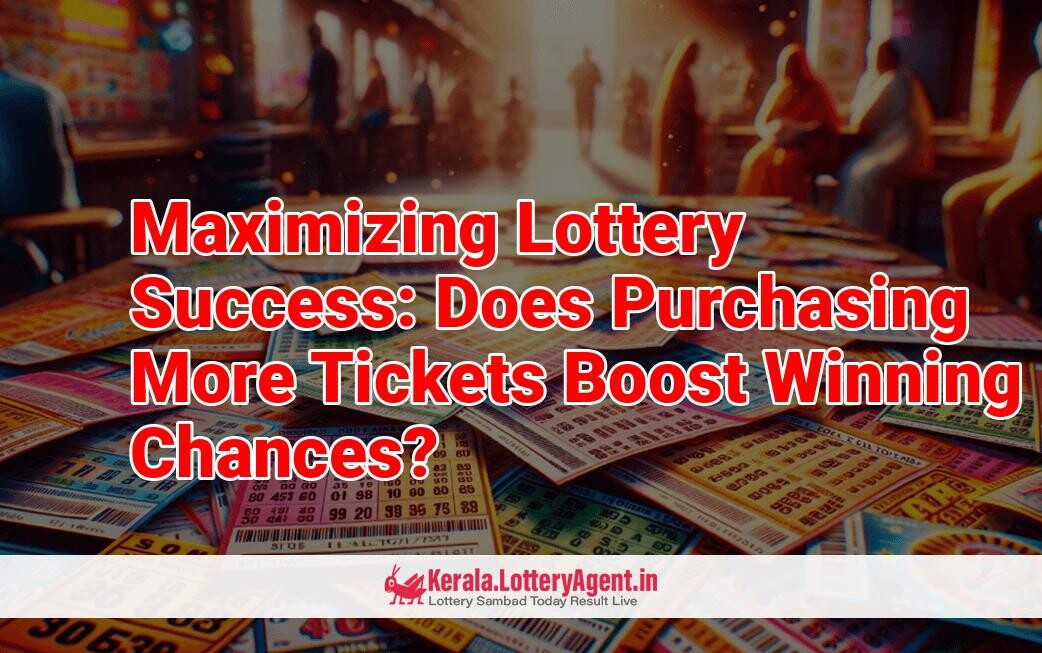
The allure of the lottery is undeniable – the thrill of the game and the possibility of a jackpot that could alter the trajectory of your life. However, as many know, the astronomical odds make winning seem like a distant, nearly impossible dream. With winning odds standing at an intimidating one in a million or even one in a hundred million, one can’t help but wonder if it’s even a venture worth pursuing.
The burning question for many is whether the likelihood of winning increases by purchasing more lottery tickets. If you find yourself pondering this very notion, rest assured that this article provides clarity. Taking a deep dive into the probability calculus of lotteries, we explore if hoarding tickets is a ticket to fortune or a misadventure in financial judgment.
Let’s delve into an example to illustrate the point: imagine participating in the US Powerball lottery. To secure the win, you’d have to choose the correct five numbers plus an additional Powerball number. With a single ticket, your chance of victory is roughly 1 in 292,201,338. Buying another ticket would nudge those odds to 2 in 292,201,338, and a third would bring it to 3 in 292,201,338.
Executing some quick math reveals that guaranteeing a win would require purchasing 292,201,338 uniquely combined tickets, costing $2 each, ending up in a staggering total of approximately $584 million ($584,402,676 to be precise). This figure is financially infeasible for the vast majority, and even for those who might afford it, sinking such a colossal sum into a game of chance is far from a sensible investment, especially unless the jackpot towers over this amount considerably.
In facing reality, it becomes clear that buying extra tickets does little to sway the balance of winning odds. The negligible difference between a one in 292,201,338 chance and a two in 292,201,338 chance calls for a more strategic approach to the lottery than simply amassing entries.
Moreover, upcoming lottery draws, as listed, flaunt tempting jackpots:
– USD 214 Million on Monday, Feb 05, 2024
– USD 358 Million on Tuesday, Feb 06, 2024
These figures might tempt one to pile up entries in either lottery. However, strategically acquiring a single ticket from each draw may present better prospects, as it covers two opportunities of winning, albeit from separate draws.
Nevertheless, your slight increase in odds by purchasing an additional ticket remains a drop in the ocean compared to the vast sea of possible number combinations. For instance, a single ticket’s odds for the Mega Millions jackpot begin at 1 in 302,575,350. A second ticket improves your chance only marginally to 2 in 302,575,350, suggesting you’d require a substantial number more for a significant impact on your likelihood of victory.
If one were to pursue a guaranteed success route, similarly to Powerball, the cost of purchasing every possible combination for the Mega Millions would hover around $605 million. Yet there are further considerations before plunging into such an endeavor. It’s better to play smarter, not necessarily more extensively. Lottery enthusiasts like Richard Lustig, who won seven times, did so by identifying lotteries with winning favorability.
Smaller lotteries, as per general consensus, present higher chances of winning. This is substantiated by a list of lotteries known for their favorable odds to lottery players, kick-starting at €2,000,000 on Saturdays.
Curiosity might lead one to inquire about the most lottery tickets ever bought by a single person. That record is held by Jerry Dagrosa, who, on behalf of Gerald and Majorie Selbee, purchased 307,000 tickets amounting to $614,000 for the Massachusetts Cash Winfall lottery in 2011.
So, how many lottery tickets should one buy to bolster their winning prospects? Paradoxically, only one. It is wiser to spread your bets across multiple draws rather than concentrating all tickets into one. This does not considerably improve your chances unless you are prepared to purchase a staggering number of tickets.
Is it advisable to purchase separate lottery tickets? Yes, because each separate ticket grants an independent chance of winning in a subsequent draw, whereas purchasing multiple tickets for a single lottery doesn’t affect odds.
When considering where the best place to procure a lottery ticket is, the answer unequivocally points towards the internet. Online purchases through reputable providers like TheLotter, LottoAgent, and Lottofy offer unparalleled convenience, ease, and security.
Do lottery corporations hold insights into where the jackpots land? No, the systems in place ensure the lottery is not rigged, and randomness reigns supreme, affording every player an equal shot at winning.
Purchasing 1,000 lottery tickets marginally tilts the odds to 1,000 in the number of possible combinations. However, with the Mega Millions, this would shape up to be a 1,000 in 302,575,350 chance – still a considerable long shot.
As for timing, the ideal period for lottery ticket acquisition aligns with jackpot roll-overs, promotional discounts, and advantageous odds. Moreover, some statistical enthusiasts claim that July, historically breeding the most EuroMillions winners from 2004 to 2022, might wield a fortuitous touch.
Ultimately, the number of Mega Millions or Powerball tickets you should purchase is at your discretion, constrained by your budget and how much you’re willing to allocate towards the game. Although multiple tickets enhance odds ever so slightly, the recommendation is moderation, buying only what you can afford. Remember, more tickets grant more opportunities but never a guarantee of hitting the jackpot.











